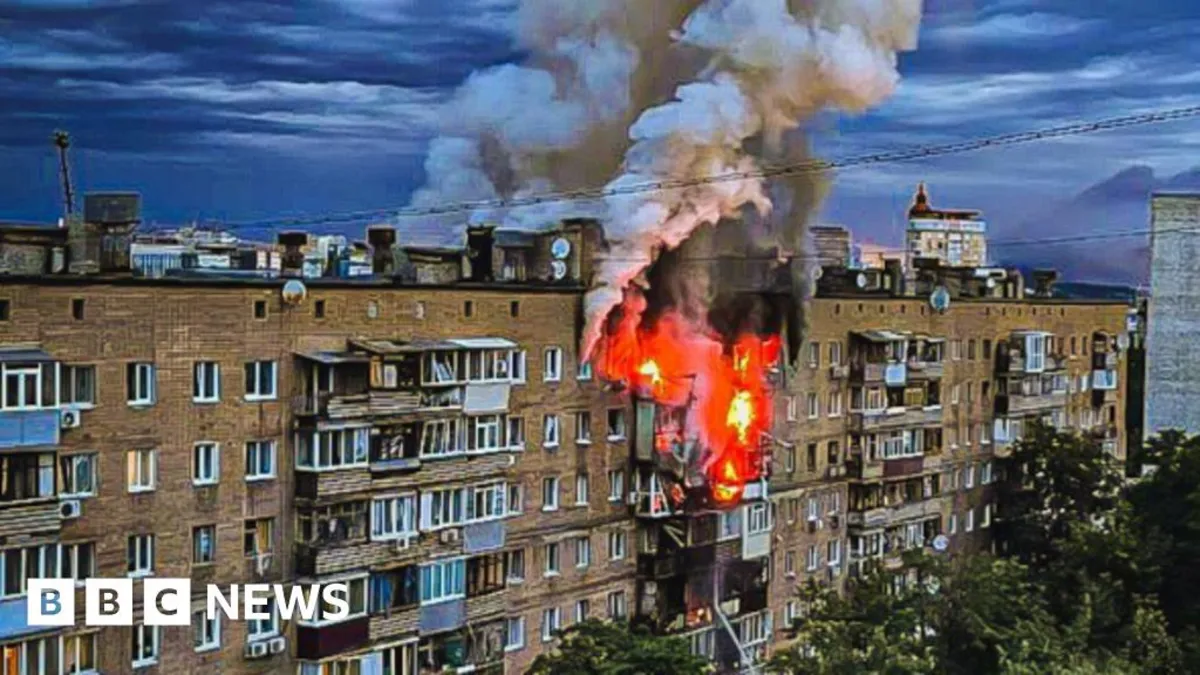
In a shocking escalation of violence, three people have been killed and another 17 injured following the largest Russian drone attack on Ukraine's second-largest city, Kharkiv, according to the city's mayor, Ihor Terekhov. The overnight assault involved the launch of 48 drones, along with two missiles and four gliding bombs, causing extensive damage to multiple residential buildings.
Mayor Terekhov reported significant destruction in Kharkiv, stating that three high-rise residential buildings were struck during the attack. Eyewitness footage has surfaced, capturing the harrowing scene of a building engulfed in flames, highlighting the urgent need for humanitarian assistance and support in the region.
This drone strike was part of a broader wave of assaults across Ukraine, where the previous night, six individuals were killed and 80 injured as Russia unleashed over 400 drones and nearly 40 missiles in a coordinated attack. Russian officials claimed that these aerial assaults were responses to what they described as “terrorist acts” by the Kyiv regime, asserting that military installations were the intended targets.
The Russian drone attacks come just days after Ukraine executed a daring counteroffensive operation, targeting Russian strategic warplanes at four air bases deep within Russian territory. The Ukrainian security service, known as SBU, reported that their Operation Spider Web successfully struck at least 40 Russian aircraft during this operation, showcasing Ukraine's evolving military capabilities and strategic planning.
Reports indicate that Ukraine utilized a total of 117 drones in their operation, which were allegedly smuggled into Russia. These drones were concealed inside wooden cabins mounted on lorries, with detachable roofs designed for remote operation. The lorries, driven by seemingly unaware drivers, were positioned near Russian air bases, facilitating the launch of these drones from a distance.
In the wake of these attacks, US President Donald Trump commented on the escalating situation, suggesting that Ukraine had provided Russian President Vladimir Putin with a justification to unleash further aggression. This statement underscores the complex geopolitical tensions that continue to escalate since Russia initiated a full-scale invasion of Ukraine in February 2022.
As the situation unfolds, the humanitarian implications of these attacks are profound. The international community is urged to respond with support for the affected civilians in Kharkiv and throughout Ukraine, as the ongoing conflict continues to take a heavy toll on innocent lives.